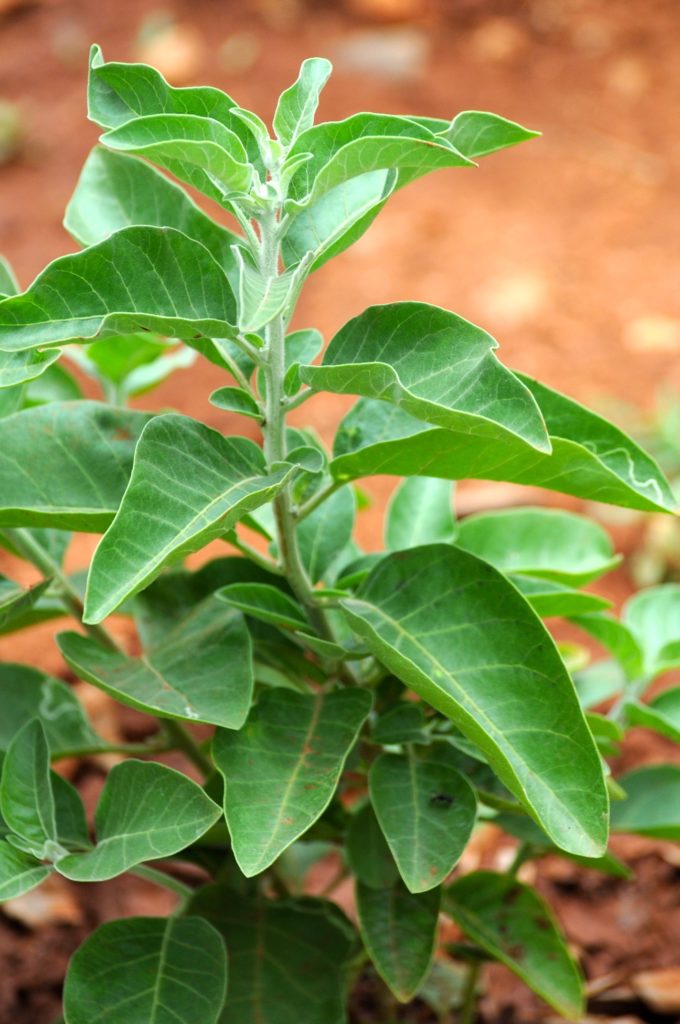
Ashwagandha grows as a weed on sandy, loamy soils of the drier more temperate parts of India. Its name Ashwagandha meaning ‘the smell of a horse’, comes from the smell of its fresh root. It is a good nervous system tonic.
Benefits of Ashwagandha: Fights cancer, improves immunity, heart disease, anemia, cholesterol, cough, depression, edema, inflammation, high blood pressure, arthritis, difficult breathing, eye weakness, joint pain, infertility, memory loss, paralysis, pain killer, swollen glands, worms.
Action: Action: Adaptogenic, analgesic, anthelmintic, aphrodisiac, astringent, galactogogue, nervine,rejuvenative, sedative, tonic, anti-inflammatory.
Scientific name: Withania somnifera.
Useful part: Root.
Dosage: 3–9g per day dried root or 6–15 ml per day
Energetics
Rasa (taste) Bitter, astringent,sweet
Vırya(energy) Heating
Vipaka (post-digestive effect)Sweet
Guna (quality) Light, unctuous
Dosa effect VK
Dhatu(tissue) Blood, muscle, fat, bone, nerve, reproductive
Srotas (channel) Reproductive, nervous, respiratory
Description: The plant is an evergreen shrub, 1–2 m high. Leaves are simple, petiolate, ovate, and glabrous. Flowers are light green or pale yellow, calyx membraneous. Berries are small, globose, orange red when mature.
Classical and common names
Ayurvedic: Ashwagandhaa, Hayagandhaa ,Ashwakanda, Gandharvagandhaa,Turaga, Turagagandhaa,Turangagandhaa, Vaajigandhaa,Gokarnaa, Vrishaa, Varaahakarni, Varadaa, Balyaa, Vaajikari
English: Winter Cherry.